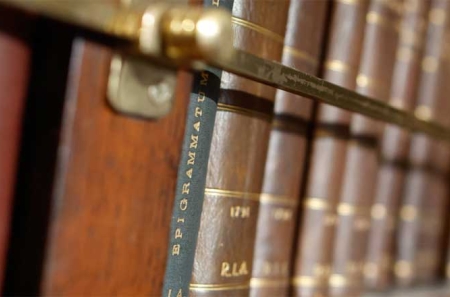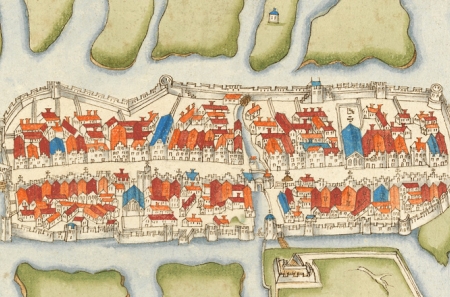Academy Discourse: Brain Mechanisms underlying Flexible Navigation
When
Thursday, February 18, 2021, 19:00 - 20:30Where
Tickets
Join esteemed neuroscientist John O'Keefe, Hon. MRIA as he discusses one of the principal navigation systems of the brain. This Academy Discourse is sponsored by Mason Hayes & Curran LLP.
The ability to navigate successfully is fundamental to animal survival. In my talk I will describe one of the principal navigation systems of the brain, the hippocampal cognitive map. The cognitive map consists of a set of specialized spatial cells coding for information about the animal’s location, heading direction and distance travelled in a familiar environment. In recent work from my laboratory, we have developed behavioural and electrophysiological techniques which have enabled us to examine how the hippocampus underpins flexible navigation. Using a newly developed testing apparatus, the honeycomb maze, we are able to probe the animal’s ability to demonstrate its understanding of the goal direction and to take indirect paths from any location in a known environment. Using large-scale single cell recording from the hippocampus, we have studied the spatial representations of the environment which underpin successful flexible navigation. Towards the end of my lecture I will speculate on the meaning of these results for human episodic memory and for some aspects of human language processing.
About the Speaker
John O’Keefe is Professor of Cognitive Neuroscience at the Sainsbury Wellcome Centre and the Department of Cell and Developmental Biology, University College London and a Principal Research Fellow of the Wellcome Trust. He is a Fellow of the Royal Society, an Honorary Fellow of the Royal Irish Academy, and holds an honorary Doctorate from University College Cork. In 2014, he was awarded both the Kavli Prize for Neuroscience and the Nobel Prize for Physiology or Medicine.
O’Keefe is interested in the role of the hippocampal formation in spatial and episodic memory, and navigation. He discovered that hippocampal pyramidal cells in the rat respond selectively to an animal’s spatial location. The discovery of ‘place cells’ suggested that this part of the brain might function as a cognitive map, a notion developed extensively by himself and Lynn Nadel (www.cognitive map.net) and now the dominant theory of hippocampal function. Numerous subsequent behavioural and neurophysiological experiments have contributed to our understanding of the place cells including their development prior to spatial experience. In 1993, he discovered phase precession, the coding of location by the time of place cell spiking relative to the hippocampal theta rhythm, still the best evidence for neural coding by spike timing. With Neil Burgess and Eleanor Maguire, he showed how the cognitive map theory could be used to understand the role of the human hippocampus in navigation and episodic memory. In current work, his group is studying the functions of the medial entorhinal grid cells and how the properties of these cells are modified by changes in the geometry of the environment. They are also studying how the cognitive map system supports flexible navigation to a goal in a familiar environment. Finally, he is currently applying these ideas and techniques to the study of Alzheimer’s Dementia. Using our understanding of the spatial correlates of cells in the entorhinal cortex and the hippocampus, he is studying changes in these cells in mouse models of the disease and how the disease modifies navigation.
Shane O'Mara, MRIA, Professor of Experimental Brain Research, Trinity College Dublin will be the Respondent.
Please join our twitter conversation using #RIAaccess2experts. The Academy Discourse Series is sponsored by Mason Hayes & Curran LLP.
Click here to read our Discourse Data Protection Statement.
Click here to read our Transparency statement in relation to the use of the Eventbrite booking platform.
Click here to read our Transparency notice in relation to photographing and filming at discourses.




